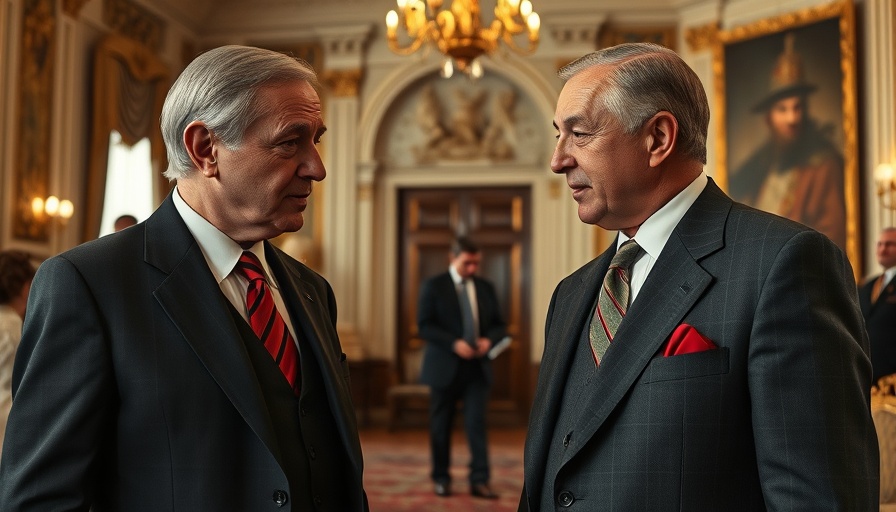
Former President Trump's Controversial Call
In a striking move that has sparked significant debate, former President Donald Trump recently called for the cancellation of Israeli Prime Minister Benjamin Netanyahu's trial on corruption charges. Trump, who has historically maintained a close relationship with Netanyahu, expressed this desire while speaking at a rally in Michigan. He argued that the trial is politically motivated, claiming it undermines both Netanyahu's leadership and Israel's stability during a critical time.
The Impact on U.S.-Israel Relations
The implications of Trump's statements extend beyond the courtroom. As Netanyahu navigates multiple legal challenges, Trump's remarks raise questions about the dynamics of U.S.-Israel relations. For decades, bipartisan support for Israel has been a cornerstone of American foreign policy. However, Trump's endorsement of Netanyahu's position might polarize opinions. Supporters of Netanyahu appreciate Trump's focus on political motivations behind the trial, while critics argue that it undermines justice and accountability.
Political Ramifications in Israel
Netanyahu's corruption trial is set against the backdrop of a deeply divided Israeli public. The prime minister faces allegations of bribery, fraud, and breach of trust. As the trial unfolds, political commentators note that the outcome could significantly shape Israel’s political landscape. Some see the trial as a potential turning point, giving Netanyahu's opponents a chance to challenge his long-standing power. Others believe it could bolster his support among right-wing voters who view the trial as a witch hunt conducted by left-leaning political factions.
What This Means for Investors
The intersection of politics and economics is glaringly apparent in the ripple effects of Trump's comments. Investors in the Middle East should be cognizant of how political instability impacts markets, especially in sectors like real estate and technology. For instance, potential volatility arising from a change in leadership could lead to fluctuations in the Tel Aviv Stock Exchange. Additionally, potential investors in Israeli startups might consider the political climate as they weigh investment strategies, anticipating how changes in governance may affect economic policies.
The Broader Context of Political Interference
Trump's call for canceling Netanyahu's trial highlights the growing trend of political interference in judicial processes worldwide. This issue not only affects Israel but raises concerns in various international contexts. As countries grapple with the balance of power among their branches of government, citizens increasingly demand transparency and accountability from their leaders.
Historical Precedence and Comparative Analysis
In examining the roots of political trials, historical comparisons illuminate the volatility of political power dynamics. Countries like Brazil and South Korea, which have seen their leaders embroiled in corruption allegations, illustrate how such situations can lead to significant political upheaval. Investments in these markets can be influenced heavily by public sentiment regarding leadership credibility, underscoring the necessity for investors to remain vigilant.
The Global Picture and Future Implications
As the global economic landscape continues to evolve, the call for canceling political trials like Netanyahu's serves as a reminder of the intricate ties between politics and market stability. Investors should remain alert to similar scenarios in other nations, considering both localized impacts and global repercussions. Future trends may emerge from how governments handle political trials, affecting decisions in asset allocation and risk management across regions.
Conclusion: The Call for Awareness
While Trump's call has been met with mixed reactions, it is essential for investors and citizens alike to ponder the implications of political trials on global markets. Understanding the political climate not only enriches investment strategies but also fosters a deeper appreciation for democratic processes worldwide.
 Add Row
Add Row  Add
Add 



Write A Comment